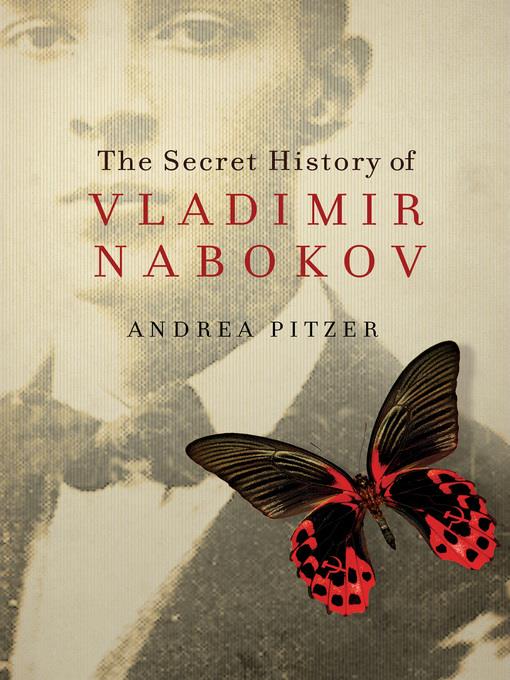
Secret History of Vladimir Nabokov
کتاب های مرتبط
- اطلاعات
- نقد و بررسی
- دیدگاه کاربران
نقد و بررسی

December 24, 2012
Despite the title, this literary study–cum–biography contains little in the way of salacious details from Nabokov’s personal life. Instead, journalist Pitzer argues that Nabokov’s work, and his eventful but not notably scandalous life, intersected with very public history in ways often missed or misunderstood. Many know Nabokov as a Russian aristocrat and refugee from the Bolsheviks, but Pitzer expands on these facts to describe how his liberal reformer father, V.D., fell afoul of both Lenin and czarist supporters. Though the experience made Nabokov staunchly anticommunist, Pitzer’s use of Alexander Solzhenistyn in counterpoint throughout illustrates how much more subtly her subject addressed political violence. The Holocaust also casts a shadow over this account of his life, from his gay, outspokenly anti-Nazi brother Sergei’s death in a concentration camp, to his beloved wife Vera’s defiant assertions of her Jewish identity against postwar America’s more genteel but still pervasive anti-Semitism. Pitzer finds this latter theme running through Lolita in unspoken parallel to Humbert Humbert’s more obvious obsessions, while Zembla, the lunatic narrator’s apparently illusory birthplace in Pale Fire, turns out to correspond to the Arctic archipelago Nova Zembla, a mysterious last stop for Soviet political prisoners. Though Pitzer’s stylized prose is burdened by a vain hope of equaling Nabokov’s mastery, her fresh perspective will likely send readers back to his books. 16 pages b&w photos. Agent: Katherine Boyle, Veritas Agency.

Starred review from March 15, 2013
Vladimir Nabokov (1899-1977) always claimed that art and politics don't mix, but this new biography suggests his own art tells a different story. In her first book, Pitzer focuses on one of the lingering mysteries about Nabokov: How could anyone so acquainted with the horrors of the Soviet Union (which killed his father) and Nazi Germany (which killed his brother) be so detached from the real world in his work? Born in the twilight of Czarist Russia, Nabokov fled the post-revolutionary landscape and spent years making his name among the emigre writers in Berlin, where he would also be forced to flee, with his Jewish wife and their young son, as Hitler came into power. Arriving in America and landing a teaching position, Nabokov focused on his writing and, as some saw it, forgot the past; he never spoke out against injustice, signed petitions, made speeches or even voted. While Solzhenitsyn was suffering in a Soviet prison camp, Nabokov was crafting an intricate novel about a middle-aged pervert's passion for a 12-year-old "nymphet." Yet, according to Pitzer, in his own imaginative way, Nabokov was bearing witness to the horrors he knew. Drawing on new biographical material and her sharp critical senses, Pitzer reveals the tightly woven subtext of the novels, always keen to shine a light where the deception is not obvious. She suggests that Humbert Humbert, Lolita's predatory narrator, is a Jew who has been destroyed by what he experienced during the war years. Hermann in Despair, the title character of Pnin and Kinbote in Pale Fire--all bear similar psychic wounds, victims of history who sometimes become villains. Though no substitute for Brian Boyd's definitive two-volume biography, this is a brilliant examination that adds to the understanding of an inspiring and enigmatic life.
COPYRIGHT(2013) Kirkus Reviews, ALL RIGHTS RESERVED.

Starred review from April 1, 2013
Journalist Pitzer (founder, Nieman Storyboard) tackles the life and work of Vladimir Nabokov (1899-1977) from a critical and refreshing viewpoint different from previous biographies. She aims to connect the turbulent events in the author's life to the events in his fiction. A writer known for his appreciation of aesthetics over historically and politically themed plotlines, Nabokov lived through the Russian Revolution and the Holocaust (his brother Sergey died in a concentration camp). Pitzer shows how Nabokov's work relates these events in a way hidden from the reader. Drawing on the novels of Alexander Solzhenitsyn, she compares the authors' lives and literary styles to illustrate the differences in how their fiction represents history; for example, Humbert's background in Lolita reflects such events as the Armenian genocide and the German concentration camps. Also, the speculation that he is Jewish perhaps represents the figure of the Wandering Jew. VERDICT Pitzer accomplishes her goal of revealing the indirect appearance of Nabokov's biography in his most celebrated fiction. Highly recommended for all Nabokov fans who as a result of reading this will probably wish to reread the works analyzed here.--Morris Hounion, NYC Technical Coll. Lib., CUNY, Brooklyn
Copyright 2013 Library Journal, LLC Used with permission.

Starred review from February 15, 2013
In a personal note Nabokov sent to Solzhenitsyn in 1974, on the day the dissident writer was expelled from the Soviet Union, Pitzer recognizes a telling connection between two writers who shared more than most critics have realized. For beneath the consummate artifice of Nabokov's tales, Pitzer discerns a hidden historical vision aligned to a surprising degree with Solzhenitsyn's. Largely undetected, the same nightmarish world of Communist brutality that Solzhenitsyn exposed in his Gulag Archipelago lies embedded in the recesses of Nabokov's major works, including Bend Sinister, Pnin, and Ada. The ugly historical effects of the Soviet Union's open-air nuclear testing lie behind otherwise puzzling features of Pale Fire. Perhaps most surprising is the presence in the depths of Nabokov's (in)famous Lolita of the horrific history of the Nazi death camps. Through her historically grounded readings of his fiction, Pitzer discredits the widespread but misleading perception of Nabokov as an art-for-art's-sake writer indifferent to the moral and political exigencies of his day. But as readers explore his devious strategies for veiling sobering historical realities in aesthetic illusions, they slowly become aware of the interpretive responsibilities that Nabokov places on the reader. A penetrating analysis certain to compel a major reassessment of the Nabokov canon.(Reprinted with permission of Booklist, copyright 2013, American Library Association.)

























دیدگاه کاربران